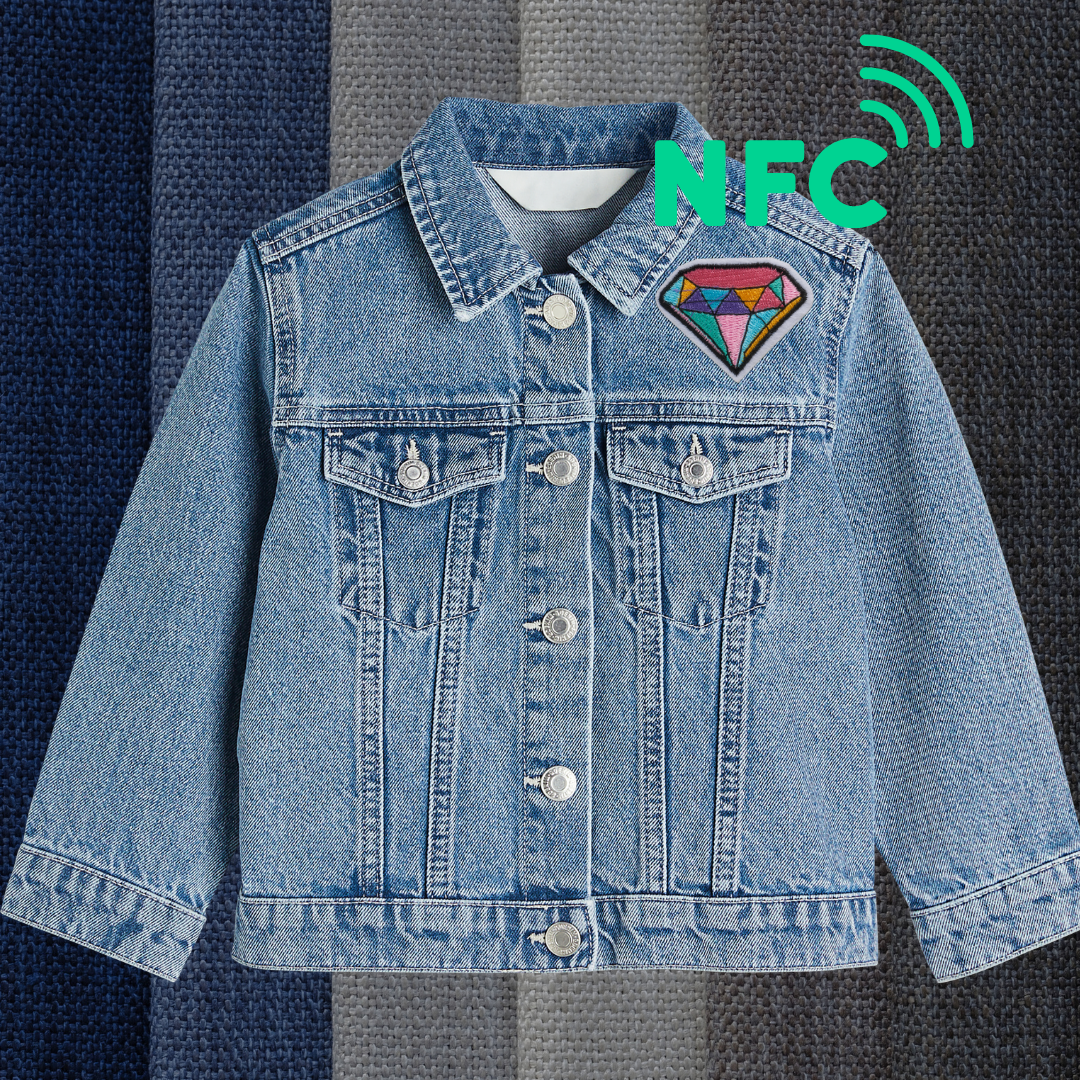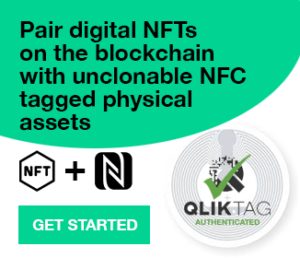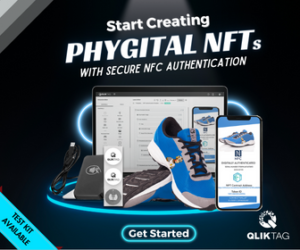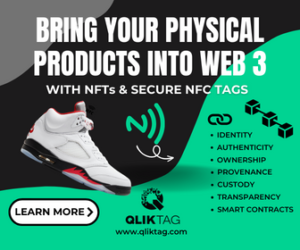NFC tags for garments are trending in the phygital fashion space. In the rapidly evolving world of fashion, technology is playing an increasingly pivotal role in transforming the way we interact with our clothing. One such innovation that is gaining momentum is the integration of NFC (Near Field Communication) tags within garments. These tiny, discreet tags are becoming the latest trend in the fashion industry, offering a multitude of benefits that make clothing more unique, personalized, and verifiable. Beyond aesthetics, NFC tags are unlocking a new realm of digital features and capabilities that are proving invaluable to both buyers and brands.
Making Garments Unique and Personalized
NFC tags for garments are enabling a new level of personalization in fashion. By embedding these tags in garments, brands can offer customers a unique experience tailored to their preferences. For example, an NFC-enabled garment might link to a personalized digital lookbook, showcasing different ways to style the item or offering exclusive content such as behind-the-scenes footage of the design process. This creates a deeper connection between the consumer and the brand, making each piece of clothing feel more like a bespoke item crafted just for the buyer.
Moreover, these tags can store information about the garment’s origin, materials, and care instructions, allowing customers to make more informed choices. For those who value sustainability, NFC tags for garments can provide transparency about the sourcing and manufacturing processes, enhancing the garment’s appeal by aligning with the consumer’s values.
Enhancing Verification and Authenticity
One of the most significant advantages of NFC tags in fashion is their ability to verify the authenticity of garments. Counterfeiting is a persistent issue in the fashion industry, costing brands and consumers billions each year. NFC tags for garments offer a robust solution to this problem. Each tag can be encoded with a unique identifier that links to a secure database, allowing customers to authenticate their purchase with a simple tap of their smartphone. Specialized secure tags with authentication technology such as the ones offered by Qliktag, have a chip that generates dynamic changing keys which makes authentication secure and unclonable. This not only protects the brand’s reputation but also ensures that customers are getting the genuine article.
Enabling Digital Features and Capabilities
NFC tags for garments are not just about personalization and verification; they are also a gateway to a host of digital features. For instance, brands can use NFC tags to offer post-purchase services such as reordering, returning, or exchanging items, all through a quick tap on the tag. This seamless integration of digital and physical retail experiences is increasingly important as consumers expect more convenience and connectivity in their shopping experiences.
Furthermore, NFC tags can be used to trigger augmented digital experiences. This blend of physical and digital experiences is at the forefront of the “phygital” trend, where the physical and digital worlds converge, offering a richer and more engaging consumer experience.
Platforms Like Qliktag: Empowering Brands and Creators
As the adoption of NFC tags in fashion grows, the need for platforms that can manage these tags and their associated digital experiences is becoming crucial. Platforms like Qliktag are leading the way in this space, offering comprehensive solutions that enable brands and creators to design, manage, and scale digital experiences tied to NFC tags.
Qliktag allows brands to easily encode NFC tags with specific information, such as product details, authentication codes, and links to digital content. This encoding process is secure and scalable, making it feasible for large-scale implementation across various product lines. Additionally, Qliktag enables the updating of these experiences post-purchase, meaning brands can continually engage with their customers, offering new content or services long after the initial sale.
One of the most exciting aspects of Qliktag is its ability to connect apparel and garments to the blockchain. This capability is particularly valuable in the context of Web3 applications, where ownership and provenance are key. By linking NFC tags to a blockchain, brands can provide an immutable record of the garment’s history, from production to sale. This not only enhances transparency but also opens up new possibilities for reselling or passing down garments, as their authenticity and history can be easily verified.
The Future of Phygital Fashion
The integration of NFC tags in garments is also paving the way for the future of phygital fashion—a blend of physical and digital experiences. With platforms like Qliktag, brands can create garments that exist both in the real world and in digital spaces. For example, a dress could have a digital twin that exists in a virtual environment, allowing consumers to wear it in the metaverse or showcase it in their digital wardrobe. This convergence of physical and digital fashion is set to become a significant trend as more consumers engage with virtual worlds and digital identities.
In conclusion, NFC tags are revolutionizing the fashion industry by adding layers of uniqueness, personalization, and digital interactivity to garments. Platforms like Qliktag are at the forefront of this transformation, providing the tools and infrastructure necessary to manage these innovations at scale. As we move into an increasingly digital future, the fusion of technology and fashion through NFC tags will continue to redefine how we perceive, interact with, and value our clothing.




